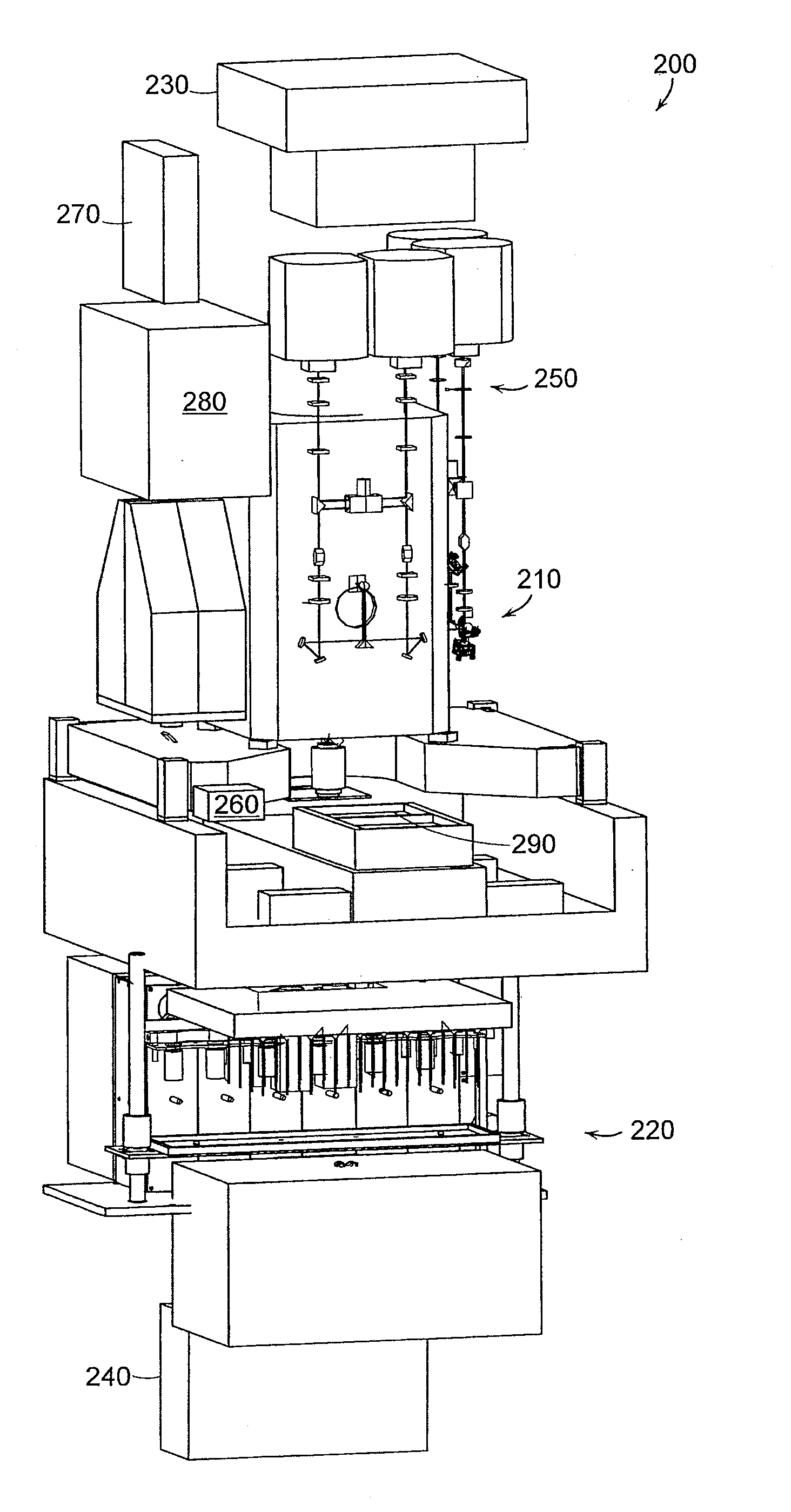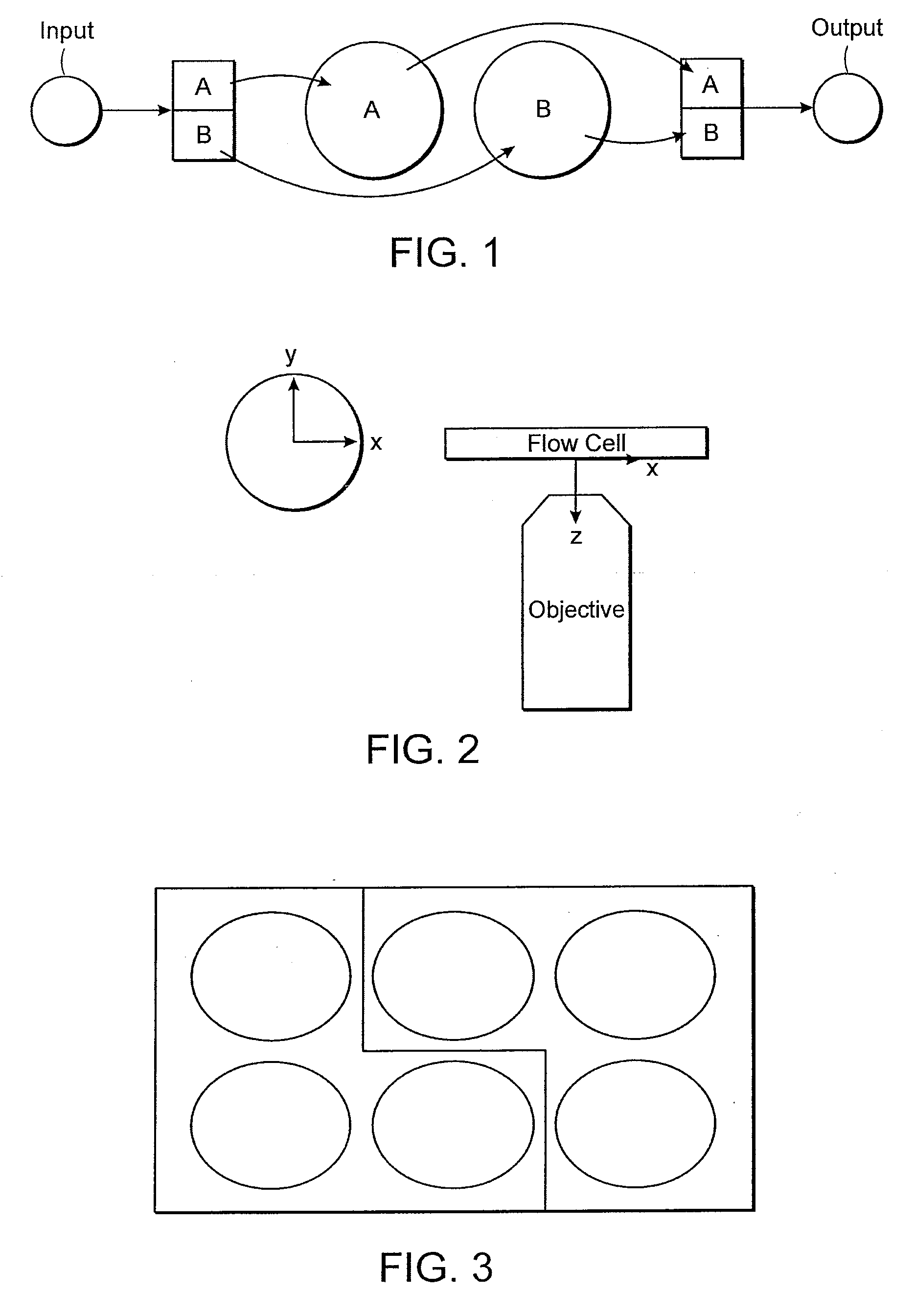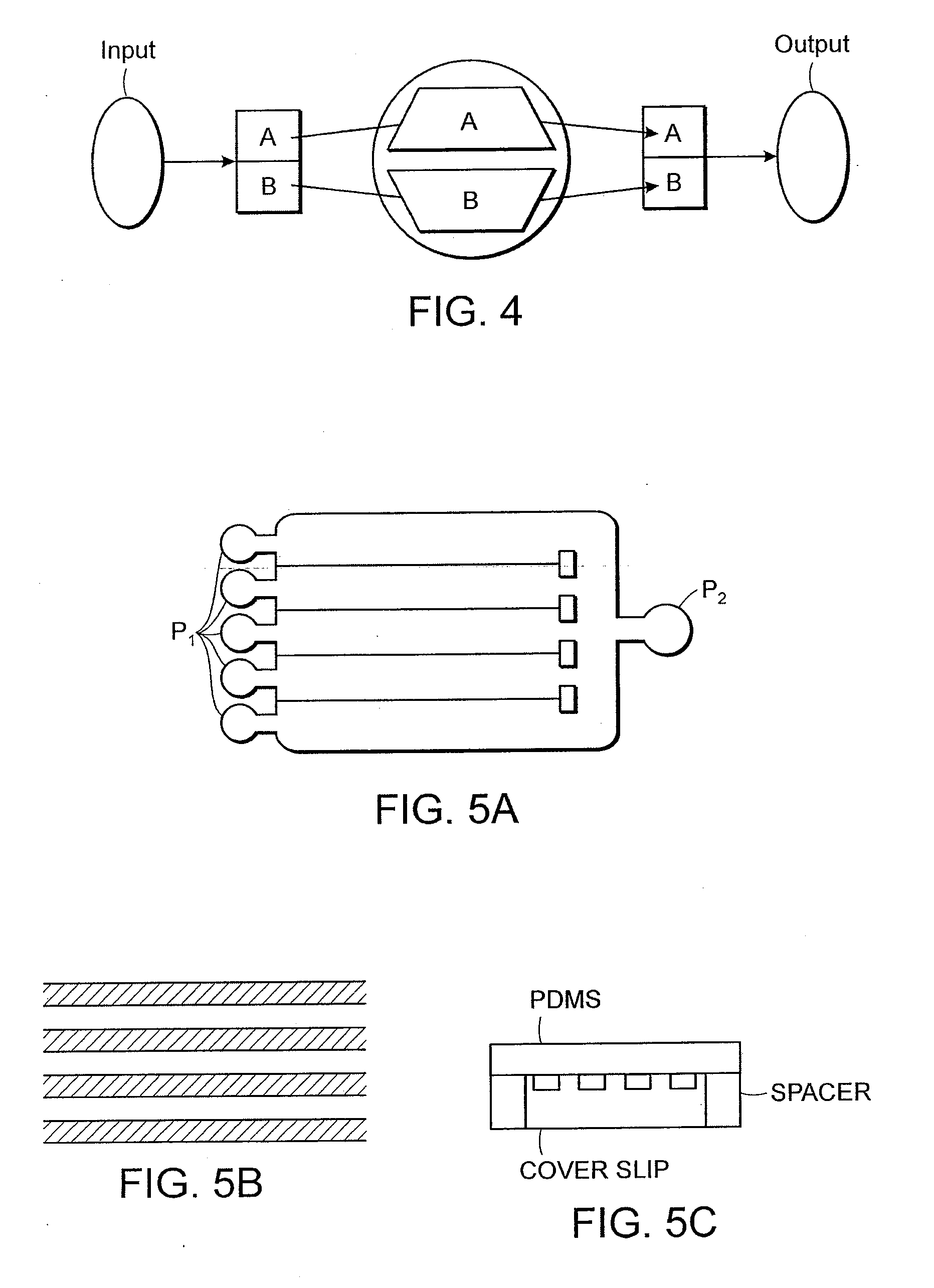Multi-Channel Flow Cells
a flow cell and multi-channel technology, applied in the field of microfluidic flow cells, can solve problems such as complex processes to be carried out, and achieve the effect of reducing cross-contamination in sample loading
- Summary
- Abstract
- Description
- Claims
- Application Information
AI Technical Summary
Benefits of technology
Problems solved by technology
Method used
Image
Examples
Embodiment Construction
and example.
[0128]The invention is described in the context of a template-dependent sequencing-by-synthesis reaction. Generally, the reaction comprises attaching template / primer duplex to an epoxide surface of two or more imaging areas as described above. Parallel sequencing-by-synthesis reactions are conducted on the surface of one imaging area using optical detection of incorporated nucleotides of a second imaging area followed by sequence compilation of both imaging areas. Either de novo sequencing or resequencing of a reference sequence is possible using methods of the invention. Partial sequencing can also be conducted using methods of the invention as will be apparent to those of ordinary skill in the art upon consideration of the disclosure herein. In a preferred embodiment, single duplex molecules are sequenced in parallel by placing them on the epoxide surface and confirming their locations. In that embodiment, only duplex that is optically-isolated from other duplex is use...
PUM
 Login to View More
Login to View More Abstract
Description
Claims
Application Information
 Login to View More
Login to View More - R&D
- Intellectual Property
- Life Sciences
- Materials
- Tech Scout
- Unparalleled Data Quality
- Higher Quality Content
- 60% Fewer Hallucinations
Browse by: Latest US Patents, China's latest patents, Technical Efficacy Thesaurus, Application Domain, Technology Topic, Popular Technical Reports.
© 2025 PatSnap. All rights reserved.Legal|Privacy policy|Modern Slavery Act Transparency Statement|Sitemap|About US| Contact US: help@patsnap.com



